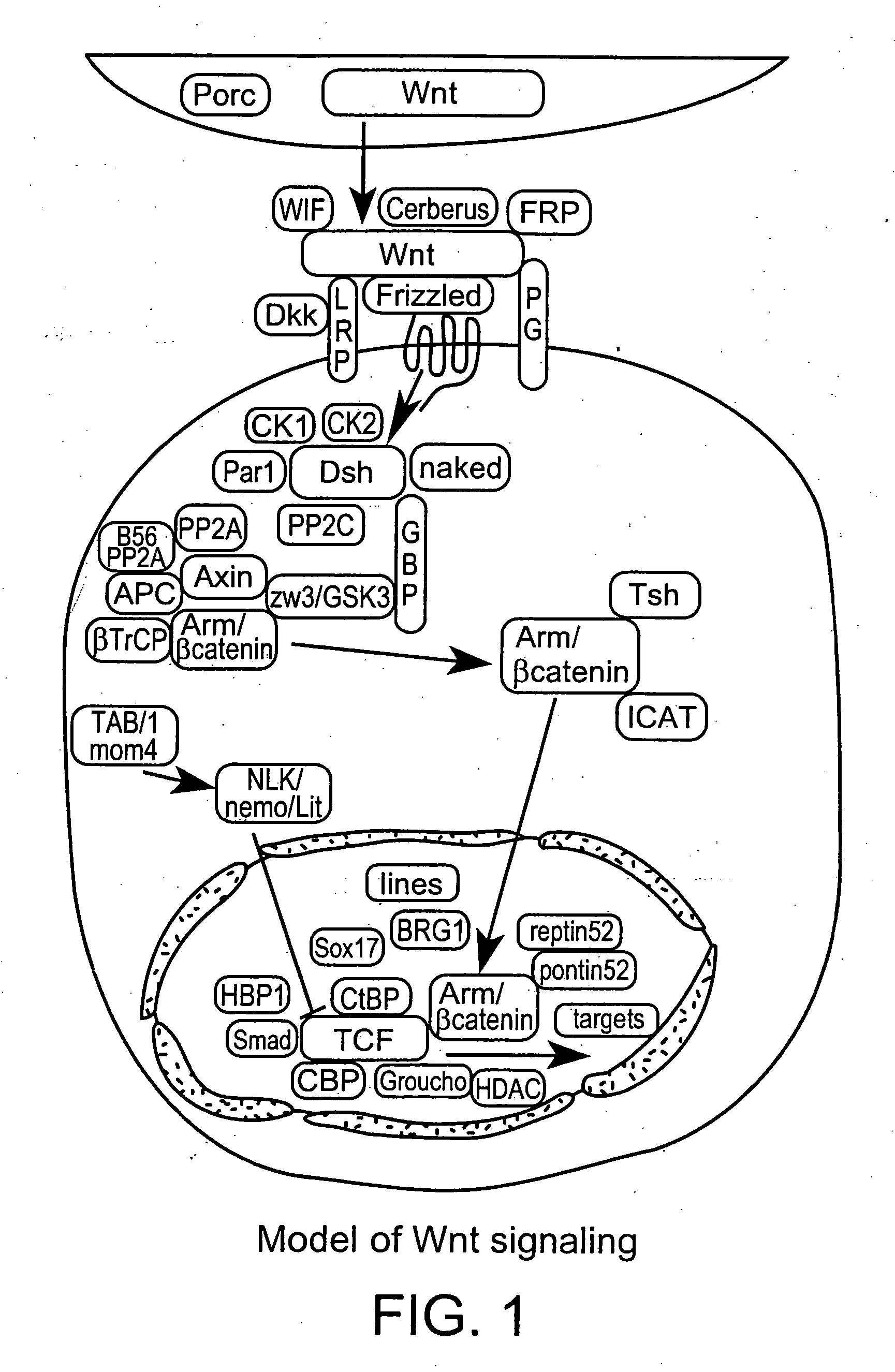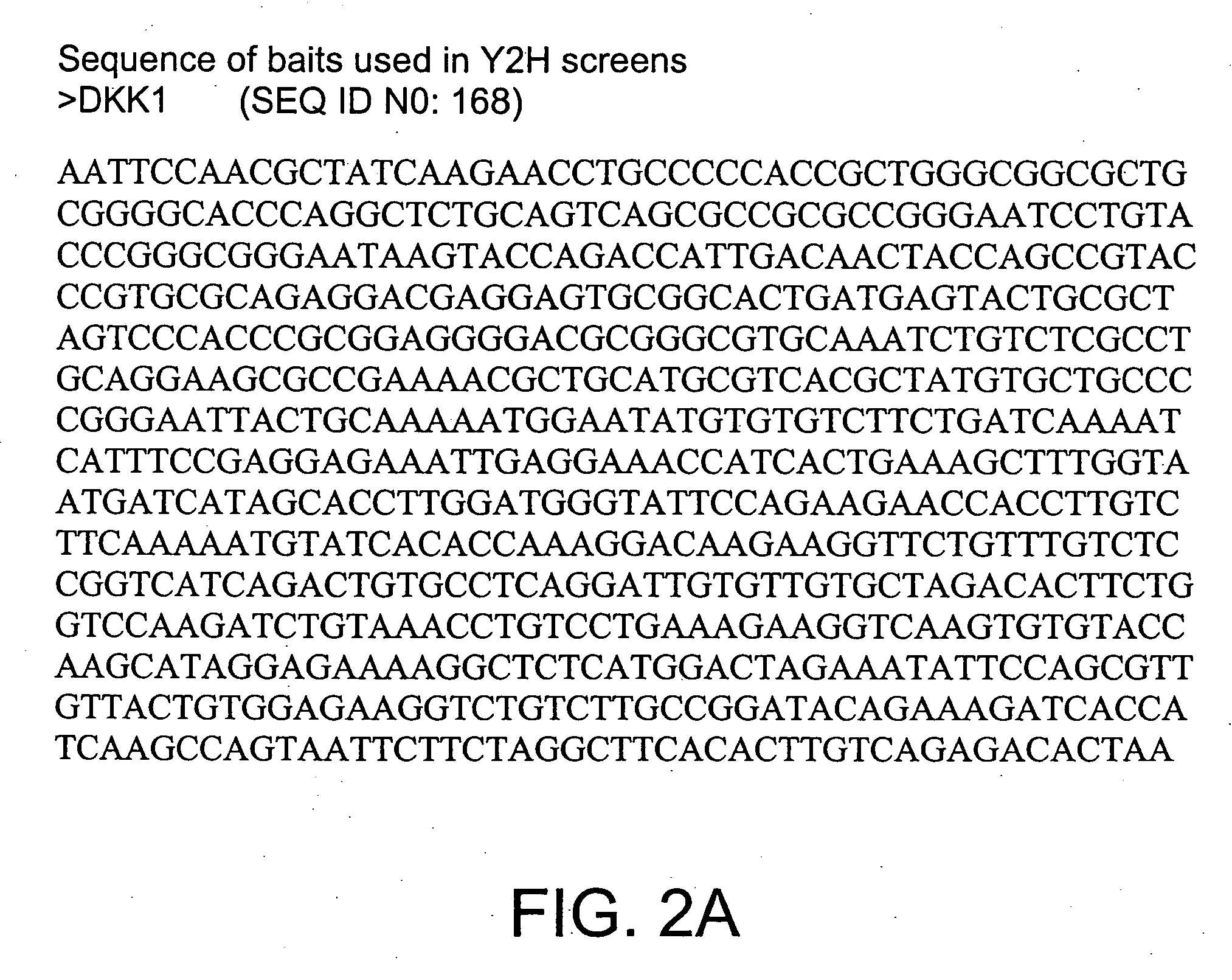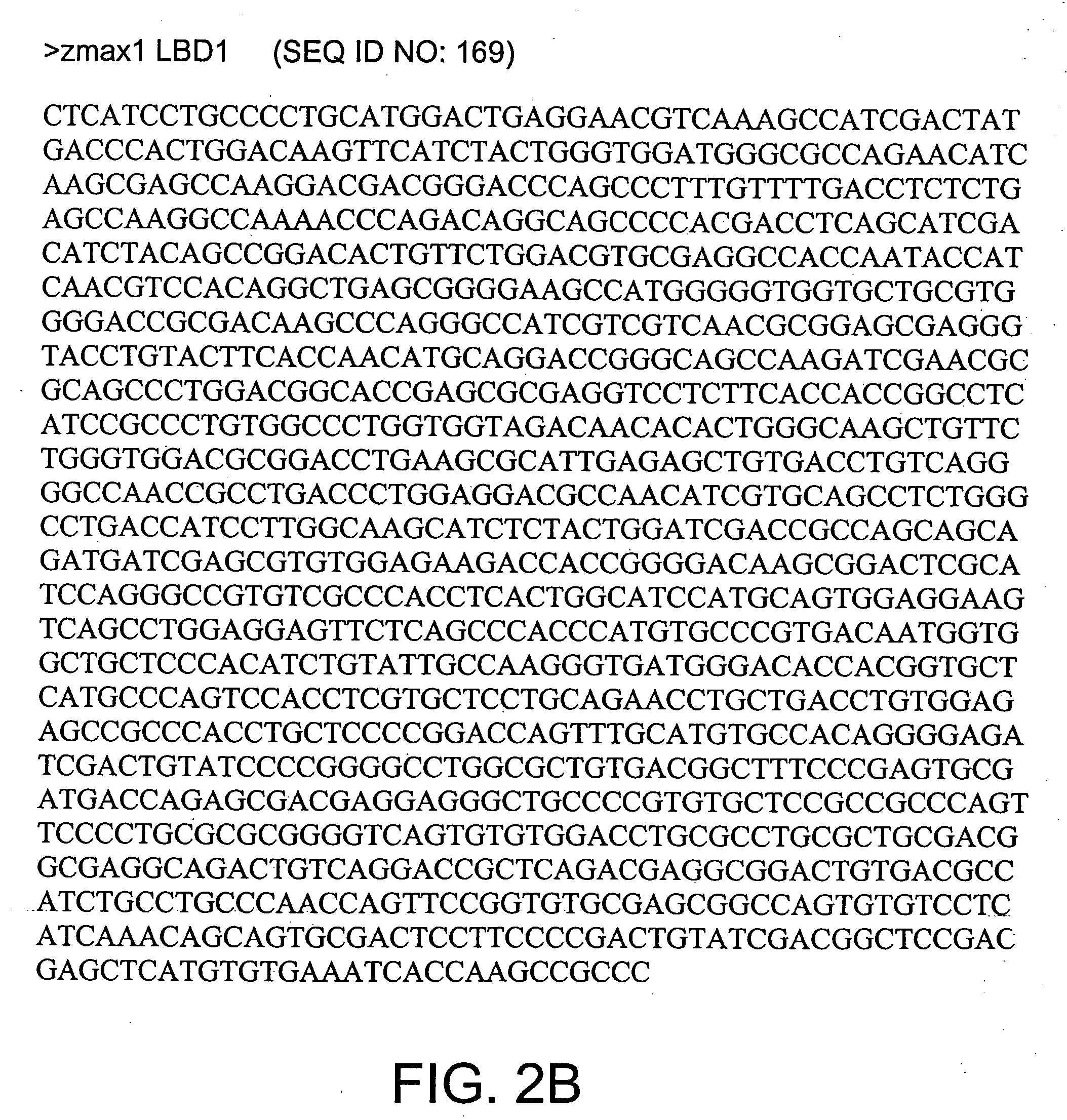Reagents and method for modulating Dkk-mediated interactions
a technology of dkk and dkk, applied in the field of signal transduction, bone development, bone loss disorders, modulation of lipid-related conditions, can solve the problems of increasing the risk of aging,
- Summary
- Abstract
- Description
- Claims
- Application Information
AI Technical Summary
Benefits of technology
Problems solved by technology
Method used
Image
Examples
example 1
Yeast Two Hybrid Screen Using LRP5 Ligand Binding Domain (LBD) Bait Sequences
[0433] In a screen against human osteoblast library (i.e., HOB03C5, a custom Gibco generated Y2H compatible cDNA library from a human osteoblast cell line as described by Bodine and Komm, Bone 25:535-43 (1999)), an interaction with Dkk-1 was identified. The LRP5 ligand binding domain (LBD) baits used for this screen are depicted in FIGS. 2B and C. The basic protocol is as follows:
[0434] An overnight culture of the yeast strain containing the bait of interest is grown in 20 ml of appropriate selective medium containing 2% glucose at 30° C. The overnight culture is diluted by a 10 fold factor into YPD media supplemented with 40 mg / l of adenine, and grown for 4 hours at 30° C.
[0435] For each mating event, an aliquot of the frozen prey library is grown in 150 ml YAPD medium for 5 hours at 30° C.
[0436] Appropriate volumes calculated by measuring the OD600 of each culture are combined into a tube. The number...
example 2
Minimum Interaction Domain Mapping
[0449] Further analysis of yeast two hybrid (Y2H) interacting proteins includes the dissection of protein motifs responsible for the interaction. Sequence alignment of multiple clones identified in the Y2H screens can help identify the smallest common region responsible for the interaction. In the absence of appropriate clones, deletion mapping of interacting domains is necessary.
[0450] PCR primers containing restriction sites suitable for cloning are designed to cover multiple sub-domains of the protein of interest (bait or prey). The methods involved in cloning, sequencing, yeast transformation, mating, and scoring of interactions are readily performed by one of ordinary skill in the art of molecular biology and genetic engineering.
Materials and Methods
[0451] Minimum interaction domain: primers were designed for PCR of the Dkk-1 clone isolated by screening a primary osteoblast cell strain (HOB03C5) library with pooled Zmax1 / LRP5 ligand bindin...
example 3
Yeast-2 Hybrid Screen for Peptide Aptamer Sequences to Dkk-1
Peptide Aptamer Library Construction
[0456] A peptide aptamer library, Tpep, was constructed, which provides a means to identify chimeric proteins that bind to a protein target (or bait) of interest using classic yeast two hybrid (Y2H) assays. The Tpep library is a combinatorial aptamer library composed of constrained-random peptides, expressed within the context of the disulfide loop of E coli thioredoxin (trxA), and as C-termini fusion to the S. cerevisiae Gal4 activation domain. The Tpep library was generated using a restriction enzyme modified recombinant Y2H prey vector, pPC86 (Gibco), which contains the trxA scaffold protein.
Generation of Aptamer-encoding Sequences
[0457] Aptamer-encoding sequences were produced as follows. DNA encoding random stretches of approximately sixteen amino acids surrounded by appropriate restriction sites were generated by semi-random oligonucleotide synthesis. The synthetic oligonucleo...
PUM
| Property | Measurement | Unit |
|---|---|---|
| pH | aaaaa | aaaaa |
| pH | aaaaa | aaaaa |
| volume | aaaaa | aaaaa |
Abstract
Description
Claims
Application Information
 Login to View More
Login to View More - R&D
- Intellectual Property
- Life Sciences
- Materials
- Tech Scout
- Unparalleled Data Quality
- Higher Quality Content
- 60% Fewer Hallucinations
Browse by: Latest US Patents, China's latest patents, Technical Efficacy Thesaurus, Application Domain, Technology Topic, Popular Technical Reports.
© 2025 PatSnap. All rights reserved.Legal|Privacy policy|Modern Slavery Act Transparency Statement|Sitemap|About US| Contact US: help@patsnap.com



